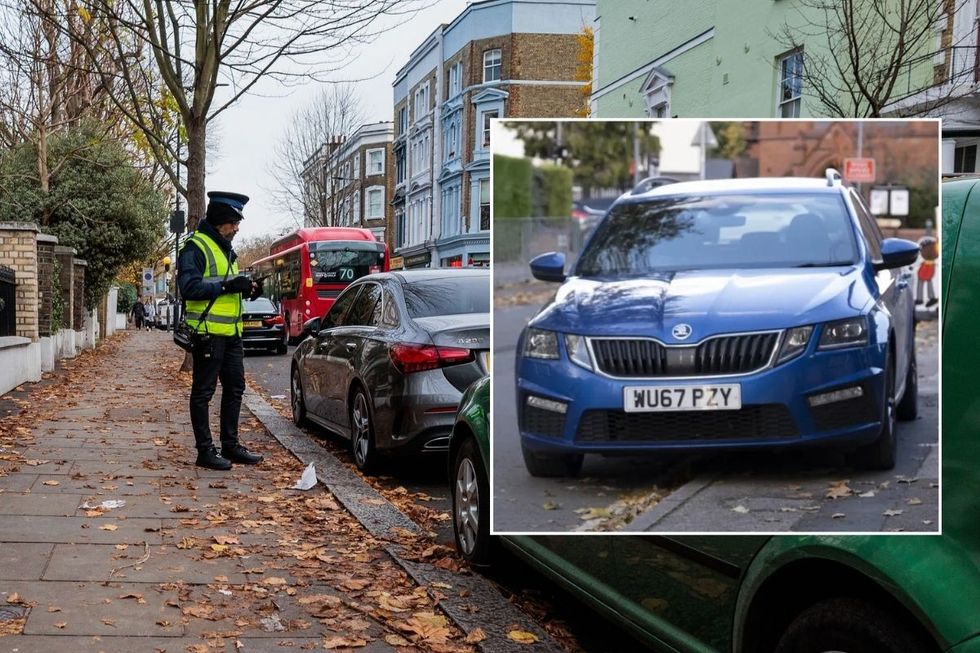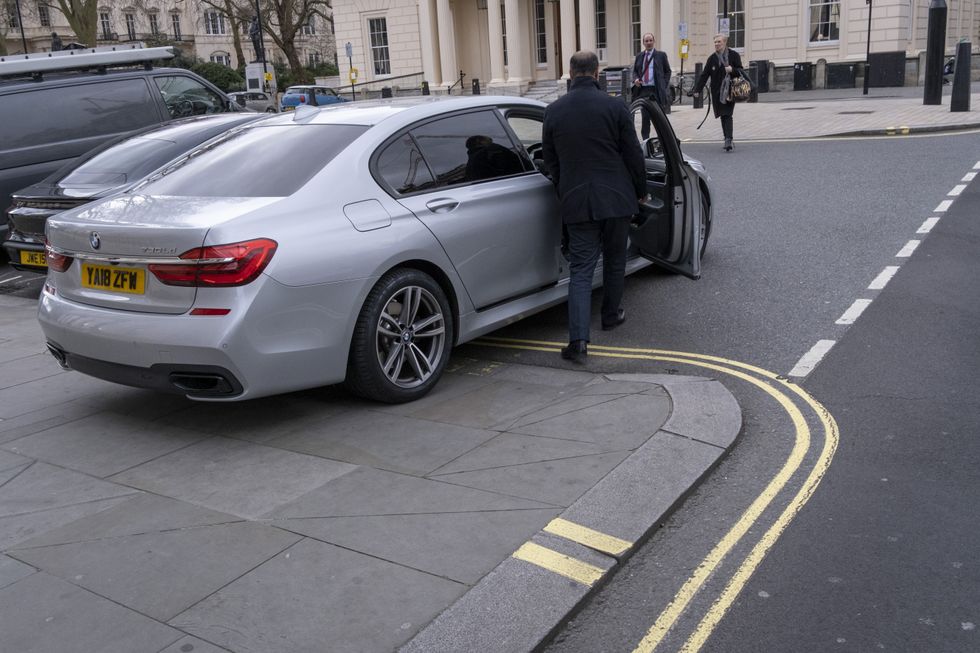Driving law changes to fine motorists for pavement parking amid fears of 'transport culture war'
Local authorities in Scotland already have the power to enforce a ban on pavement parking
Don't Miss
Most Read
A leading MP has spoken to GB News about the possibility of a nationwide ban on pavement parking and whether new laws could be introduced to deal with motorists.
Earlier this week, the All-Party Parliamentary Group for Cycling and Walking (APPGCW) released a new report on social justice in active travel and what changes need to be done to ensure people have access to walking and cycling opportunities.
One of the report's key recommendations included a renewed focus on the scourge of pavement parking and how it can cause "disproportionate harm" to disabled people.
Disability campaigners have called on the Government to introduce new measures to crack down on parking issues, which can prevent those in wheelchairs or with pushchairs from having enough space on the pavement and potentially push them into the road.
Do you have a story you'd like to share? Get in touch by emailingmotoring@gbnews.uk

The APPGCW report calls for a renewed look at banning pavement parking
GETTYThe Scottish Government has already taken steps to tackle reckless drivers by making it illegal to park on the pavement, at dropped kerbs, and to double park.
Drivers can be slapped with a penalty fine of £100 for breaking these rules, with several towns and cities around the country already rolling out the measures this year.
Olly Glover, Liberal Democrat MP for Didcot and Wantage, told GB News that he hoped the new report would kickstart momentum towards a ban on pavement parking.
He said: "It's down to us as an All-Party Parliamentary Group to make sure we use the outcomes of the report to [ban pavement parking].
"It is important. But I also think the way we go about tackling pavement parking is important because there are quite a lot of complexities."
Potential issues could arise when planning the design of new homes and streets, with Glover suggesting that a ban could "challenge the culture" around why people feel they have to own more than one car.
Glover, who has been an MP since 2024, added: "It's important that we go about that by listening and through dialogue, rather than getting into another transport culture war."
The APPG met with Local Transport Minister Simon Lightwood earlier this week to discuss the report and what measures could be used in the future to crack down on parking issues.
In 2020, under the leadership of former Prime Minister Boris Johnson, the Conservative Government launched a consultation which proposed options to tackle pavement parking at a local authority or national level.
Potential measures included improving Traffic Regulation Orders and introducing legislative changes allowing local authorities to enforce against "unnecessary obstruction of the pavement".
A third option would have been to introduce a London-style pavement parking ban across England. Parking on footways or footpaths, or in front of dropped footways or raised carriageways, is banned on almost all streets in London at all times and can lead to fines and the vehicle may even be towed.
Despite concluding over four years ago, the Government has yet to respond to the consultation, with the most recent update coming in 2023, noting that feedback was being evaluated and that further information would be provided "in due course".
LATEST DEVELOPMENTS:

A potential ban on illegal parking hopes to encourage more walking and cycling
GETTYThe APPGCW report also called for reforms to be introduced to the Cycle to Work scheme to help low-income workers, freelance workers and pensioners access cycles, since these groups are currently ineligible for the current scheme.
Fabian Hamilton MP, co-chair of the APPGCW, added that walking and cycling should be available to everyone and called for the address of "systemic barriers that prevent millions from participating".














